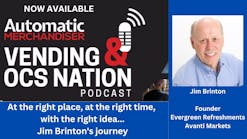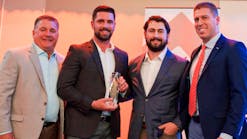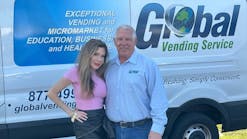ARAMARK recently announced it will source all shell eggs within the U.S. from cage-free hens by the end of 2014. ARAMARK’s announcement comes after its recent commitment to eliminate all pork from animals bred using gestation crates in ARAMARK’s U.S. supply chain by 2017.
Both announcements were made in conjunction with the Humane Society of the United States (HSUS), the nation’s largest animal protection organization. ARAMARK is the largest U.S.-based food service company to make these commitments.
“We’re committed to operating responsibly and addressing key issues throughout our supply chain and business,” said Kathy Cacciola, ARAMARK’s senior director of environmental sustainability, in a prepared statement. “This commitment to source shell eggs from cage-free hens, along with our recent commitment to eliminate pork from animals bred in gestation crates, helps move our industry toward an even stronger commitment to animal welfare.”
ARAMARK purchases approximately 30 million shell eggs annually in the U.S. Currently, eggs from cage-free hens are an available option for clients. ARAMARK has collaborated with the HSUS to take the next step, and put in place a plan to source all shell eggs from cage-free hens by the end of 2014.
“We appreciate ARAMARK’s commitment to improve animal welfare through sourcing practices within its supply chain,” said Josh Balk, director of corporate policy for the Humane Society of the U.S. “ARAMARK is further proving that creating humane-minded policies is good for animals, consumers, and business.”
The elimination of battery cages for egg-laying hens has become increasingly important to ARAMARK, its clients and consumers, according to the release. Cage-free eggs are produced by hens that are allowed to roam, and demand for cage-free eggs continues to increase. On the federal level, the proposed Egg Products Inspection Act Amendments would provide a uniform national standard for the housing and treatment of egg-laying hens.
“This commitment is consistent with our long-standing efforts to demonstrate corporate responsibility in action,” Cacciola said. “From the food we purchase, to our energy and water conservation efforts, to our waste management practices, we are continually making decisions and acting in ways that help advance sustainable practices within our organization and in our many client relationships.”





